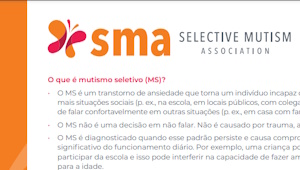Online Library
How to Participate Effectively in Your Child’s IEP Meeting
As a parent of a child with special education needs, you should learn how to use the IEP (Individualized Education Program) process as an effective tool to obtain appropriate special education and related services for your child.
You Should Know:
- What an IEP should consist of.
- How to prepare for an IEP meeting.
- How to write your own IEP input statement.
- How to effectively participate in an IEP meeting.
- How to use positive communication skills to build a cooperative home/school relationship.
- How to obtain appropriate special education and related services for your child through the IEP.
What is an IEP?
Federal Law (The Education for All Handicapped Children Act) mandates a free appropriate education for all children with special needs from three to 21 years of age. The IEP is the specific vehicle for your child’s free appropriate education. You must always keep in mind that you, as the parent, know your child better than anyone else. Therefore, your input during the IEP process is essential and invaluable.
Federal Law requires that a written Individual Education Program (IEP) be developed, and reviewed annually, to meet your child’s unique special education needs. The IEP is developed at a special meeting, which includes your participation and the participation of:
- Your child’s teacher and another representative from the school who is qualified to provide or supervise your child’s special education program.
- Your child, where appropriate.
- A member of the evaluation team, or staff member who is knowledgeable about the procedures and results of the evaluation (for a newly evaluated child).
- Other persons, of the school’s or your choosing, who have a current educational interest in your child.
Your Child’s IEP Should Consist of:
- A statement of your child’s present educational performance level.
- Annual goals for your child and short-term instructional objectives.
- Specific educational services to be provided.
- Specific related/supportive services to be provided based on determined needs, projected date and duration of these services.
- The extent, if any, of your child’s participation in the regular education program of the school.
- The extent, if any, of your child’s participation in the summer program.
- Appropriate criteria, evaluation procedures and the schedules for determining annually (at least), whether instruction objectives have been achieved.
An annual goal is a general statement of desired change and progress to be worked towards throughout the year. The number of annual goals is determined by the nature and severity of the handicap. Generally, there are between five and ten.
Example: To improve self-help skills; to eliminate self-destructive behaviors; to improve understanding of basic math concepts.
A short-term instructional objective is a specific statement regarding changes and progress to be achieved during the next two to three months. This is to include: the materials and methods that will be utilized; how often, and for how many minutes the objectives will be worked on; who will work with the child; and what criteria and evaluation procedures will be used to determine to what extent each goal has been achieved.
Example: The child will be required to attempt to button his/her coat before leaving the school on a daily basis. The teacher will assist the child only after the child attempts to do it himself/herself. The teacher will reward the child with praise for trying. The child will also work with a big button doll for three minutes, three times a week with assistance and verbal reinforcements from the teacher. Criteria for completion of the goal will be the ability to button the coat independently 90% of the time.
Necessary transportation services and vehicle adaptation should be included in the IEP.
Example: Transportation to be provided by a bus equipped with two-way radio and with a bus attendant.
Your Child’s IEP Can Be Implemented Through:
- A regular class in a public school, with appropriate supportive/related services.
- A special class in a public school, with appropriate supportive/related services, as necessary.
- A special public school.
- A special education program in private day or residential school that meets state standards (if this is needed to meet your child’s educational needs).
- A special home or hospital program if your child is absent from school more than two consecutive weeks.
- A special education program in a state residential facility.
Your Child Should Receive Appropriate Non-Academic and Extracurricular Services
- Adaptive physical education (if unable to participate in regular physical education).
- Music, art, home economics.
- Other non-academic subjects that other children in your school are receiving.
- Recreational opportunities that other children in your school are receiving.
If Your Child Needs a Summer Program
If your child needs a summer school program, a recommendation for the program must be written into the IEP before your child can participate.
In a letter to Congressman Butler Derrick, former Secretary of Education, Shirley M. Hufstedler wrote concerning summer school requirements:
- …Part B of EHA (Education of the Handicapped Act) does not mandate that all handicapped children receive special education and related services on a twelve-month basis.
- Part B of EHA does, however, require that each handicapped child provided special education and related services in accordance with an individual education program developed for that child…
Appropriate related/supportive services must be provided to meet your child’s needs as indicated in the IEP. These can be:
- Speech and language services.
- Psychological services, social work services, counseling services.
- Special readers, brailists, typists and interpreters.
- Physical and occupational therapy and other necessary therapeutic services.
- Consultative services.
- Supportive institutional services.
- Medical services for evaluation and diagnostic purposes and school health nurses.
- Parent counseling and training.
- Resource centers.
- Transportation services.
The need for related services is determined by an appropriate evaluation of the child’s needs. If you feel your child is in need of a specific related service, you should request an evaluation in that specific area.
The IEP should state each needed related service, the date of the initiation of the service and the anticipated duration of the service. It should also state how many times per week, and for how many minutes, the service will be rendered and by whom. The IEP should also state whether the service will be provided on a one-to-one basis, in a group, or only by consultation with the classroom teacher.
Example: Physical Therapy for 20 minutes daily on a one-to-one basis with the Physical Therapist. Speech Therapy for 30 minutes daily in a group of three children with the Speech Therapist. Occupational Therapy on a consultation basis with the teacher ten minutes per week.
When requesting related services you should base your request on the premise that your child needs a given service in order to benefit from his/her educational program.
If You Disagree
- If you cannot come to an agreement, are running out of time, or need time to consider the situation, you have the right to request another meeting. Do not feel pressured to make a decision on the spot.
- You may obtain an independent evaluation and request an-other meeting based on the new evaluation.
- Remember that federal law does not require that you sign the IEP. If you do not agree, simply sign your name and write after it “attended meeting, but not in approval of the IEP.”
- If school personnel refuse to include needed services in the IEP, or follow recommendations from an independent evaluation you may file for a Due Process Hearing and/or Mediation. File a written complaint with the Office for Civil Rights and/or contact the Department of Education, Office of Special Education and Rehabilitative Services. Be sure to ask for a copy of the IEP. The IEP may be revised at any time if you so request. It must be reviewed at least annually.
By the Coordinating Council for Handicapped Children
Reprinted with permission.
Posted July 2000




